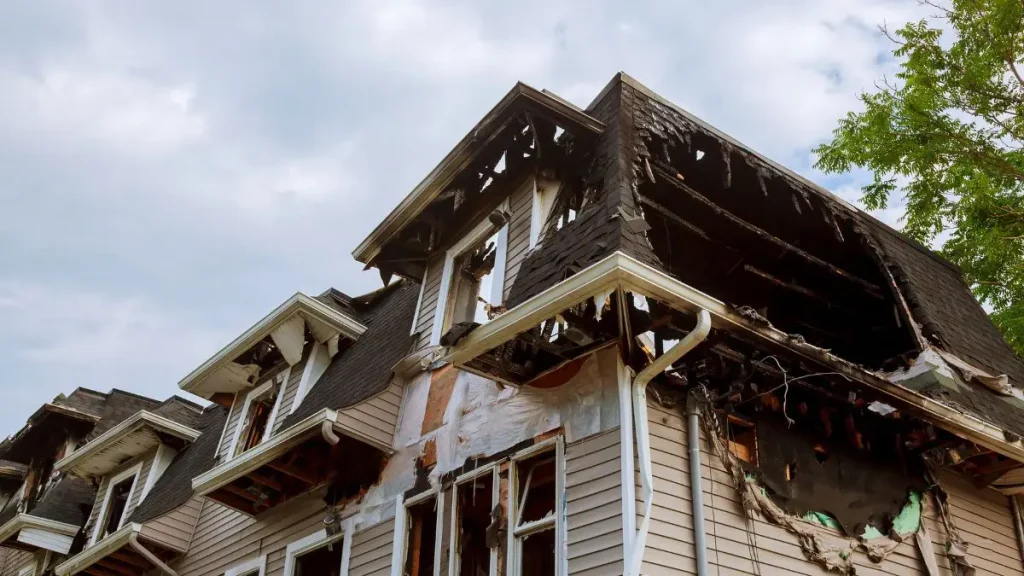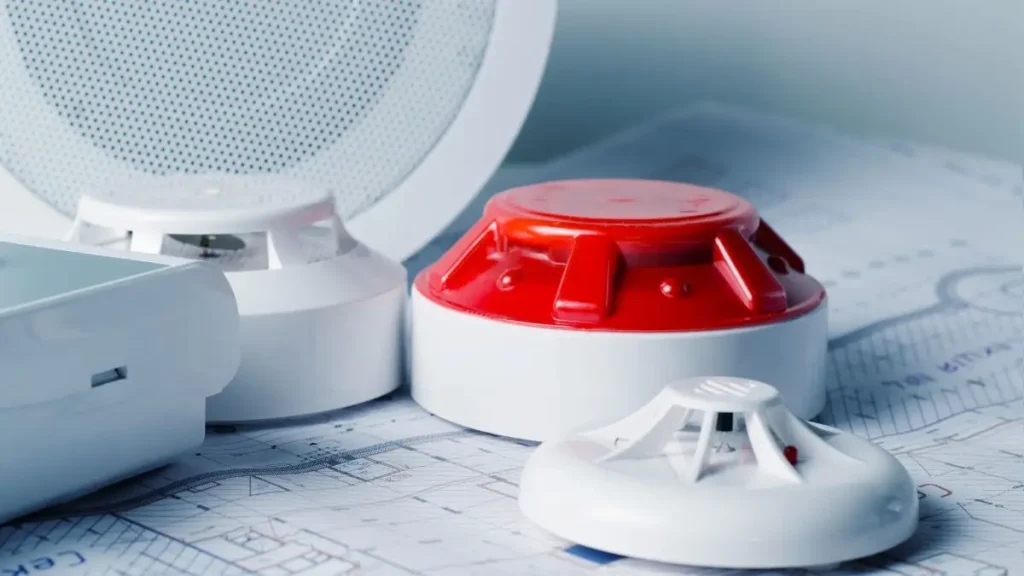House Fire in Spring Hill, Florida Erupts From Lithium-ion Battery Explosion
I’ve seen a lot of house fire stories over the years, but this one out of Spring Hill, Florida hits differently. A regular weekday, an ordinary garage, and suddenly—a lithium-ion battery explodes. Within minutes, the entire house is filling with smoke. Two people and their dog barely make it out in time.
This isn’t just another headline. It’s a real reminder of how something we all use—batteries in power tools, e-bikes, even phones—can turn dangerous without warning.
Firefighters arrived fast. The smoke was already pouring out from the garage on Venetia Drive. They had to go in hard and fast to stop it from spreading deeper into the home. Luckily, no one was hurt. But the damage? Serious enough that you’d think twice about what’s sitting in your own garage right now.
This wasn’t a rare, freak event either. Fires linked to lithium-ion batteries are becoming way too common. And the worst part? Most people have no idea what signs to look for, or how fast these fires can go from spark to inferno.
What Really Happened in Spring Hill?
The fire started in the garage of a home on Venetia Drive, Spring Hill. According to ABC Action News, it was triggered by a lithium-ion battery that suddenly exploded—likely while charging.
It was Tuesday afternoon when neighbors saw smoke and called 911. The couple inside the house, along with their dog, made it out safely. But the garage was already engulfed in flames by the time firefighters arrived.
Crews from Hernando County Fire Rescue responded fast and launched what they call an “offensive attack.” In plain terms? That means they rushed inside despite the danger because they knew every minute counted. Thanks to them, the rest of the house didn’t burn down.
This wasn’t a cooking accident or a candle left burning. This was a tech-related fire—powered by a battery most of us wouldn’t even think twice about.
Sadly, this isn’t the first time residential fires have taken lives. A recent Kansas fire turned deadly when a woman couldn’t escape in time.
Why Do Lithium-Ion Batteries Explode?
Let’s get into the “why,” because that’s what matters.
Lithium-ion batteries are powerful—and that’s also what makes them risky. When they overheat, get damaged, or are poorly made, they can go into something called thermal runaway. That’s a fancy way of saying: the battery gets hotter and hotter, fast, until it catches fire or explodes.
It can start with a tiny internal short circuit. Or charging it on the wrong adapter. Or storing it somewhere hot, like a closed garage in Florida. Once the chain reaction begins, there’s no off switch.
And no, this isn’t rare. Fire departments around the U.S. have been reporting an uptick in these battery fires over the past few years—especially with the rise of e-bikes, scooters, and cordless tools.
If you’ve ever felt a device get unusually warm while charging, that’s your red flag.
In some tragic cases, families don’t get the chance to escape—like the Forest Acres incident where officials found a body after the flames were out.
Why This Spring Hill Fire Isn’t Just “Another Story”

It’s easy to scroll past local news. But this one deserves a second look—because it could happen in any neighborhood.
WFLA News reported that the battery was inside the garage, charging at the time of the explosion. That’s a common setup: people store their power tools, lawn equipment, or spare e-bike batteries in the garage. It seems safe. Until it isn’t.
Think about it: most garages don’t have smoke detectors. If a fire starts there, it has time to grow before anyone notices. And since lithium-ion fires burn hotter and faster than regular flames, they’re harder to contain.
This wasn’t just bad luck. It’s a wake-up call.
This is clearly a bigger issue than most people realize. Have you or someone you know experienced a close call with a battery fire? Drop your thoughts in the comments—your experience might help someone else stay safe.
Are Firefighters Ready for This New Kind of Fire?
Honestly? Many departments are still catching up.
Lithium-ion fires don’t behave like “normal” fires. They burn hotter, they release toxic gases, and they can re-ignite even after being put out. That means firefighters need different gear, different training, and way more caution.
Hernando County’s fire crew did everything right in Spring Hill. They acted fast, used offensive tactics, and kept the damage limited. But not every department is equally prepared—especially in smaller towns or rural areas.
The National Transportation Safety Board has raised concerns about this. They’ve pointed out that as electric vehicles and battery-powered devices spread, many fire crews need urgent upskilling.
This isn’t about blame. It’s about readiness.
What You Can Do to Stay Safe at Home?
You don’t need to panic. But you do need to be proactive. Here are some no-BS safety tips:
- Buy only certified batteries — Look for UL, CE, or other safety marks.
- Never charge overnight — Fires often start while people are asleep.
- Keep batteries cool — Don’t store them in hot garages or closed cars.
- Use the original charger — Cheap replacements can overheat or mismatch voltage.
- Check regularly for swelling or leaks — If a battery looks off, get rid of it.
And when you’re done with a battery? Don’t just toss it in the trash. Damaged or expired batteries should be disposed of through proper e-waste or hazardous material channels.
If you’re someone who likes quick, reliable safety tips right on your phone, there’s a WhatsApp channel that shares real-time alerts and practical advice about home fire incidents, battery hazards, and prevention habits. It’s a quiet but useful way to stay ahead of risks.
Prevention Checklist – Simple Actions That Could Save Your Home

Here’s a clear, no‑fluff checklist I use—and you can too:
- Only buy batteries from trusted brands with safety certifications
- Never leave devices charging unattended or overnight
- Store batteries and chargers in open, ventilated spaces—not closed garages
- Avoid mixing chargers or swapping incompatible cells
- Regularly inspect batteries for swelling, leaks, or odd smells; when in doubt, dispose of them
- Install smoke detectors near risk zones like garages or workshops
- Use a Class D fire extinguisher if you work with high‑capacity batteries
These fire risks aren’t just limited to small towns either. A Cleveland house fire recently injured one person and killed another—even with quick emergency response.
What to Do If a Battery Fire Starts in Your Home?
Even with precautions, accidents can still happen. Here’s what to do if a lithium‑ion battery catches fire:
- Don’t move the device—it can explode or spread fire.
- Evacuate everyone, including pets.
- Close doors behind you to slow fire spread.
- Call 911 immediately and tell them it’s a battery fire.
- Don’t re-enter—these fires can reignite even after they seem out.
In Spring Hill, the homeowners got out in time. But the fire department said it was dangerous close.
Final Thoughts
The Spring Hill fire wasn’t just an isolated accident—it’s part of a growing pattern we can’t afford to ignore. Lithium-ion batteries power our lives, but they also come with real risks if we’re not careful. A few smart habits, a little awareness, and the right gear can mean the difference between a close call and a catastrophe.
So ask yourself: are the batteries in your home as safe as they should be?
If you’re interested in more real-life fire safety stories and prevention tips, visit our website for the latest updates.
Disclaimer: This article is for informational purposes only. Always follow manufacturer guidelines and consult professionals for fire safety advice. In case of emergency, call 911 immediately.


